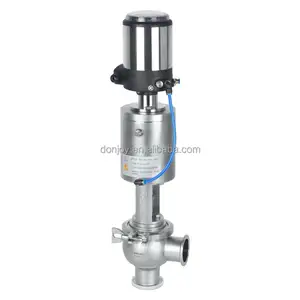LPG Valve for Car: An Essential Component Overview
Liquefied Petroleum Gas (LPG) systems in vehicles rely on specialized components to ensure efficient fuel delivery and safety. Among these, the LPG valve for car plays a pivotal role. This introduction delves into the various types of LPG valves designed for automotive use, their applications, features, and the materials used in their construction.
Types and Applications of Car LPG Valves
The automotive industry utilizes a range of LPG valves, each serving a specific function within the vehicle's fuel system. The car LPG solenoid valve, for instance, is an electromechanically operated valve used for controlling the flow of LPG to the engine. In contrast, the car LPG filler valve is designed to facilitate the safe and secure refilling of the vehicle's LPG tank. These valves are integral to the performance and safety of LPG-powered vehicles, finding applications in passenger cars, commercial vehicles, and other automotive machinery where LPG is the preferred fuel choice.
Features and Materials of LPG Valves for Cars
LPG valves for automotive applications are engineered with features that promote durability and reliability. The materials used, such as brass or stainless steel, are selected for their resistance to corrosion and their ability to withstand high pressures. These valves often incorporate advanced sealing technologies to prevent leaks and ensure secure operation under varying environmental conditions. The design of a car lpg solenoid valve typically includes a coil that, when energized, creates a magnetic field to open or close the valve, allowing for precise control of LPG flow.
Advantages of Using Specific LPG Valves in Vehicles
Utilizing the correct type of LPG valve for car ensures that the fuel system operates at peak efficiency. These valves are designed to provide consistent fuel flow, which is crucial for the optimal performance of the engine. Moreover, the use of a specialized car lpg filler valve ensures that refueling is conducted safely, minimizing the risk of leaks or spills. The overall advantage of using these valves lies in their ability to maintain the integrity of the LPG system, contributing to the longevity of the vehicle's engine and fuel components.
Conclusion
In summary, the LPG valve for car category encompasses a variety of valves, each tailored to meet the demands of LPG fuel systems in automotive applications. From the precision control offered by solenoid valves to the safety ensured by filler valves, these components are essential for the maintenance and performance of LPG-powered vehicles. By understanding the types, applications, features, and materials of these valves, buyers can make informed decisions when selecting the appropriate LPG valve for their automotive needs.





![[FCT] auto spare parts lpg fill valve black gpl filling valves for car](https://s.alicdn.com/@sc04/kf/H62125bcfe37e435696a582aad88ce3f8a.jpg_300x300.jpg)



































 浙公网安备 33010002000092号
浙公网安备 33010002000092号 浙B2-20120091-4
浙B2-20120091-4